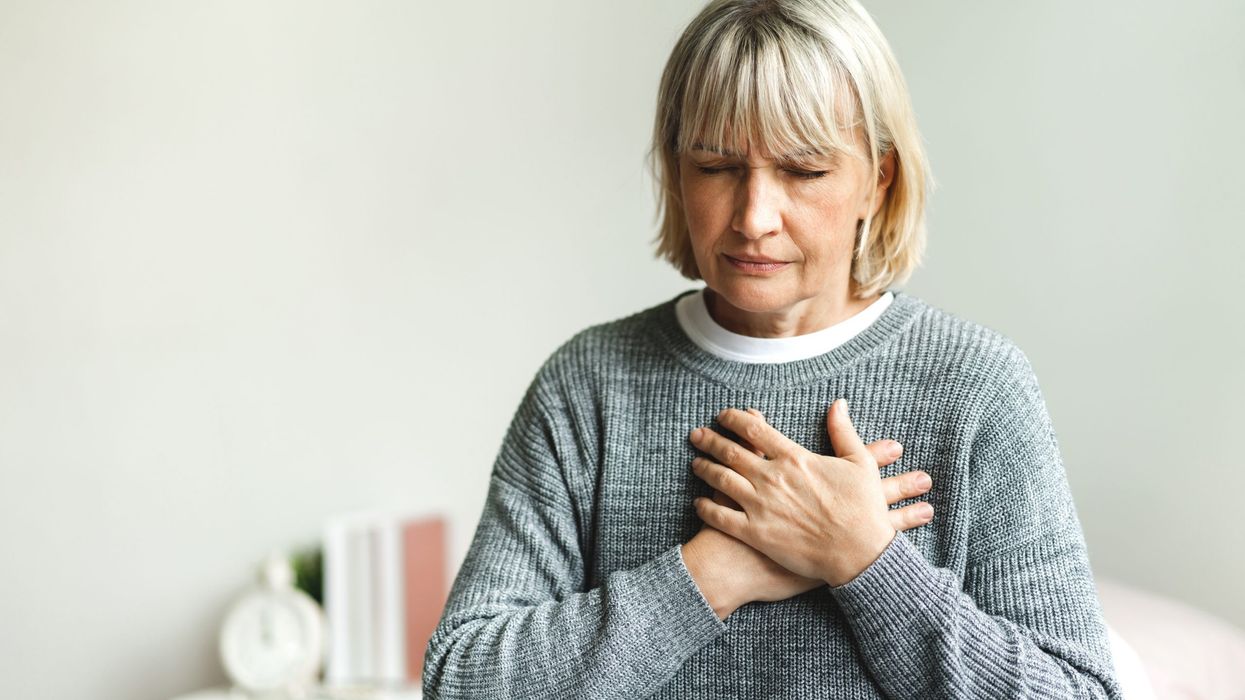Individuals experience gender-specific warning signs prior to an impending sudden cardiac arrest, new research published in The Lancet Digital Health journal reveals.
The study, led by the Smidt Heart Institute at Cedars-Sinai Medical Centre in California, USA, observed that women predominantly experienced shortness of breath as a notable symptom indicating an impending cardiac arrest, whereas, men commonly reported chest pain as a prominent symptom in such situations.
However, within smaller subgroups of both genders, instances of palpitations, seizure-like activity, and flu-like symptoms were identified.
Additionally, the study's findings indicate that among individuals experiencing a sudden cardiac arrest, 50% of them had encountered at least one discernible symptom such as chest pain, breathlessness, light-headedness, or an irregular heartbeat within 24 hours before the onset of heart function loss.
Harnessing warning symptoms to perform effective triage for those in dire need of emergency healthcare services could lead to early intervention and prevention of imminent death, the study said.
"Our findings could lead to a new paradigm for prevention of sudden cardiac death," said Sumeet Chugh, from Smidt Heart and senior and corresponding author on the study.
Out-of-hospital sudden cardiac arrest has been found to claim the lives of 90 per cent of those experiencing it, thus marking an urgent need to better predict and prevent the condition, the study said.
Researchers examined data from two US community-based studies, both developed by Chugh - California-based Prediction of Sudden Death in Multi-Ethnic Communities (PRESTO) study and Oregon-based Sudden Unexpected Death Study (SUDS).
Fifty per cent of the 823 people, or 411 people, who had a sudden cardiac arrest witnessed by a bystander or emergency healthcare professional, experienced at least one telltale symptom 24 hours previously, the PRESTO study showed.
It was launched eight years ago and a total of 1,672 individuals with out-of-hospital sudden cardiac arrest of probable cardiac cause were included.
The SUDS study, initiated 22 years ago, too showed similar results, the researchers said. "This is the first community-based study to evaluate the association of warning symptoms - or sets of symptoms - with imminent sudden cardiac arrest," said Eduardo Marban, executive director of the Smidt Heart Institute.
"Next, we will supplement these key sex-specific warning symptoms with additional features - such as clinical profiles and biometric measures - for improved prediction of sudden cardiac arrest," said Chugh.
Participants' data were obtained from emergency medical services reports for people aged 18-85 years with witnessed sudden cardiac arrest (between Feb 1, 2015, and Jan 31, 2021) and an inclusion symptom, the study said.
Data were also obtained from corresponding control populations without sudden cardiac arrest who were attended to by emergency medical services for similar symptoms (between Jan 1 and Dec 31, 2019), the study said.
(PTI)




